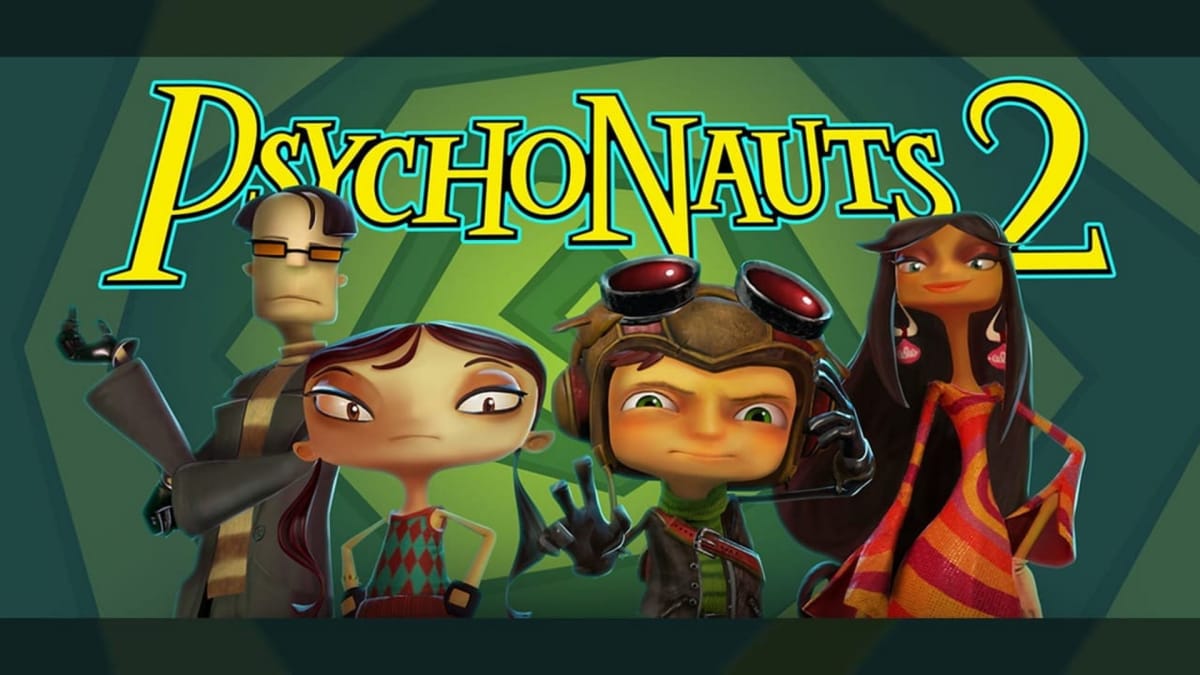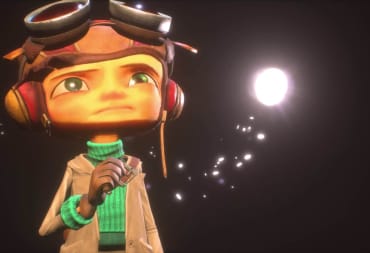Misconceptions. Fiction. Myths. All of these surround Psychonauts 2 and FIG—the latest big crowdfunding attempt. Poring through the documents, we've gone over and also talked with noted Game Lawyer Zachary Strebeck regarding the crowdfunding situation on Psychonauts 2, investments, and FIG itself. Zachary has previously talked about Crowdfunding on his site extensively so reading his blog could help give you another view on a lot of gaming things in that area, beyond a business perspective.
Let's start with a quick recap of what you probably already know. Psychonauts 2 is the sequel to the critically acclaimed and cult hit Psychonauts by Tim Schafer's Double Fine.
Double Fine was the first gaming company to really get big cash in on Kickstarter crowdfunding raising over 3.3 million dollars for the Double Fine Adventure, which would later become known as Broken Age, presumably for the fact it was broken into two releases separated by an age.
Last year, FIG was founded along with its parent company and set up a team of advisors that reads like a who's who of big Kickstarter successes company-wise. You have Double Fine, Obsidian, InXile, Harmonix, and more, and all were key players in getting this new crowdfunding portal, designed to be about games and offer investment opportunities in addition to reward crowdfunding, off the ground.
Psychonauts 2 asked for 3.3 million to get funded, the same amount Broken Age got and it recently passed that ... So, now that we've got all that out of the way, let’s talk about specific points on FIG, investment stuff, and of course Psychonauts 2.
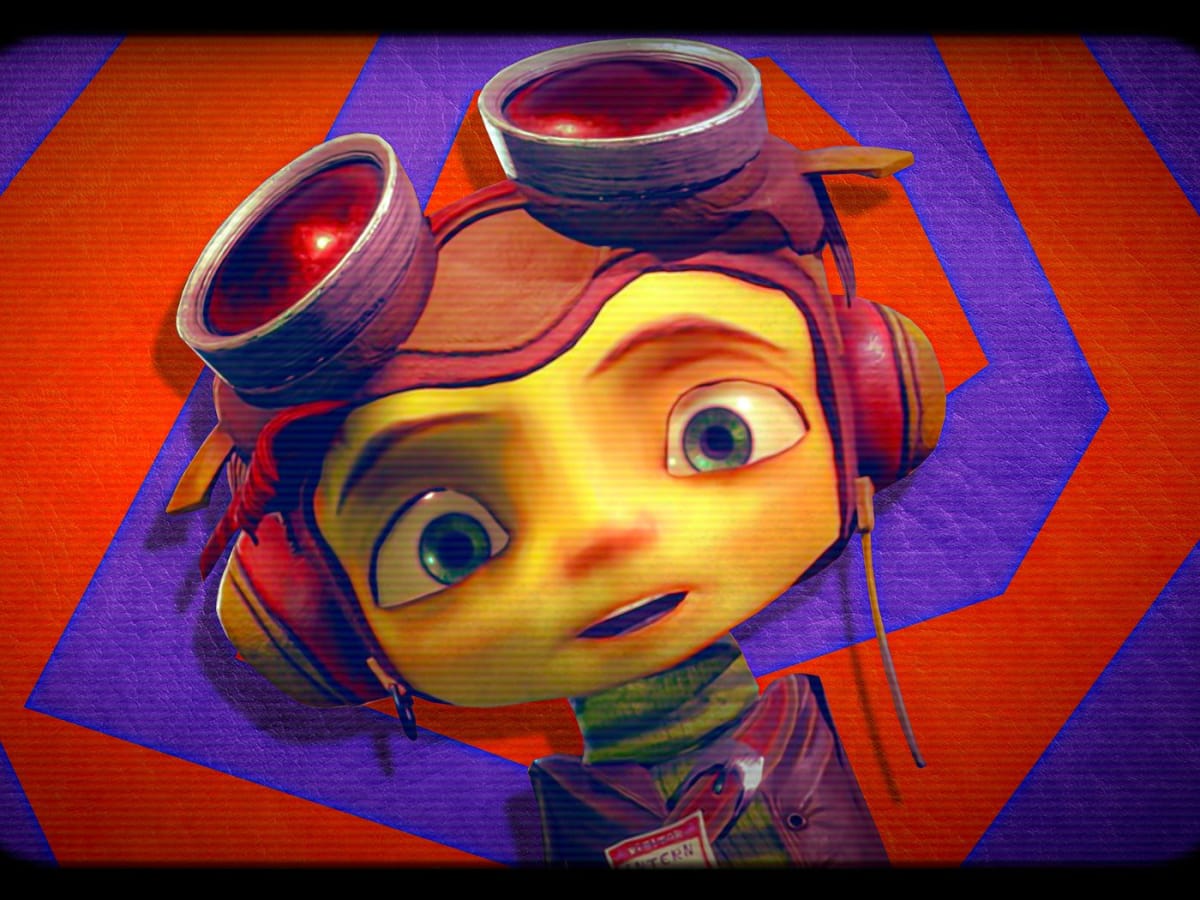
FIG Just Handles Crowdfunding
Status: Fiction
This isn’t how FIG is working and we’re going to simplify a bit here so that we don’t end up in a giant chart of convolution because FIG is doing something a bit different. In essence, FIG is the co-publisher for the game via its subsidiary where the money for investments is put in and handles things like promotion, store access, and other traditional publisher duties. FIG will, in future projects, do this from its share of past sales as well as its cut from crowdfunding.
In the case of Psychonauts 2, FIG is taking nothing from the campaign itself, and instead treating it as a chance to get exposure according to the documents. Their parent, Loose Tooth, will instead cover the publishing costs for Psychonauts 2 as they are subsidizing the first big offering.
Also, there are some people who have wondered if the money is all going to FIG, and no. No, it's not. It gets paid out basically immediately as we'll address later as a lump sum to Double Fine.
But That means FIG is just another evil publisher
Status: Fiction
First of all, not all publishers are evil. Second of all, FIG is operating on a very different model than most publishers and has clearly been designed from a developer perspective—unsurprising given its founders are all developers with some dissatisfaction with the traditional publishing model as can be seen in some past crowdfunding videos by Brian Fargo and Tim Schafer. FIG importantly doesn’t impose major conditions that normally are used by publishers as sureties that developers find irritating.
First: There are no milestone payments. Instead, it’s given to the developer in a lump sum payment at the start and there is no need to meet arbitrary milestones that prove progress is being made.
Second: The Developer owns the IP. FIG does not own the IP or the rights to spinoffs, sequels, or anything else regardless of what happens with the project, and that is not held as a surety for the investors or backers.
Third: There is no "advance against royalty" set up like many publishing deals have wherein the publisher gets paid back on the money invested before the developer sees any of the money. Most publishing deals rely on this type of setup.
If, for example, EA was publishing a Double Fine game and after hitting the milestones and getting published the payment was 10 million with Double Fine making 45% of adjusted royalties, that 45% would only begin going to Double Fine once EA had gotten it's 10 million back from that 45%.
These all mean that FIG is about providing the platform and service but has minimal checks actually on the developer. Whether that is a good thing or not is up in the air as giving creators free rein can end up with anything from spectacular success to spectacular failures.
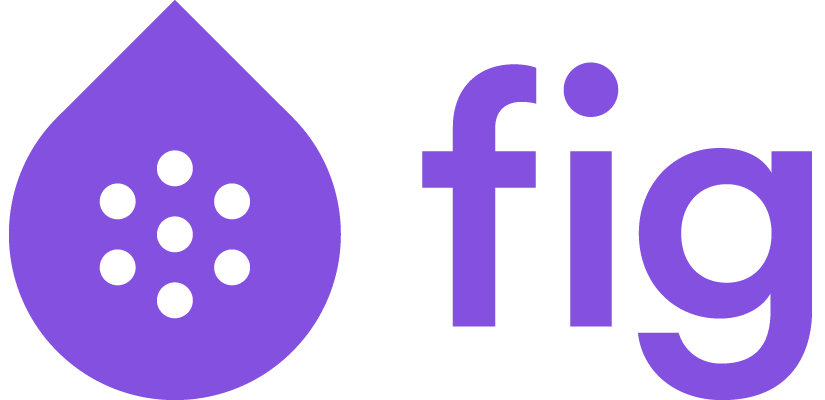
FIG’s Terms of Use Don’t Guarantee Rewards or Project
Status: Fact
This is absolutely true, although there is some nuance to the point to be discussed. Here we’re back to talking about the Reward’s funding—the Investment funding is in all the documents that FIG provided and everyone anticipates some. FIG’s terms of use specifically state in relation to Rewards Based Crowdfunding:
Rewards-based crowdfunding involves the creation of a Campaign by Fig for a game developer (the “Campaign Owner”) to raise funds for the Campaign Owner’s project through contributions from individuals or entities (“Contributors”) in exchange for rewards (“Rewards”). Contributions should be considered a gift or donation rather than a purchase, as Fig can make no assurances that the Campaign Owner will be able to produce the Rewards in a timely fashion or at all. Rewards are not refundable. Fig makes no representations about the quality, morality or legality of any Campaign, Campaign Owner or Reward.
So, FIG makes no claim that Tim Schafer is a decent person, that Psychonauts 2 will actually be finished, or that Psychonauts 2 won’t suck or is not actually propaganda in disguise. This is starkly different from Kickstarter and Indiegogo’s Terms of Use, which require a best-faith effort and explanations if it’s not possible and returning any funds that remain.
In particular, this brings to mind, just sticking with Double Fine here, the completely unfinished state of SpaceBase DF-9, the running out of funds part way through Broken Age and releasing it in two parts, or the fact that Broken Age still hasn’t sent out all their rewards yet almost a year past the release of Part 1.
However, Terms of Use on the Internet are rather iffy things in general, as their legality is in a state of limbo in many cases. How binding they are is unknown, and according to Zachary Strebeck, a lawyer who specializes in games that we consulted on this piece, pledging on FIG may constitute a contractual arrangement:
My opinion may be, that regardless of those terms you may have an implied contract where you still owe the copy of the game, whether or not there is realistically any legal recourse there. I don’t think there is, it’s just not worth suing in those cases.
However, one of the bigger issues is that legal action in the case of crowdfunding is difficult. Laws regarding reward-based crowdfunding are lagging behind reality, and in general, it will cost far, far more to take legal action than what you are due for backing a project. That leaves the only potential recourses to limited things, such as class-action or government ran cases like Washington State’s.
FIG Changing the End Date Breaks their Agreements
Status: Fiction
Alright, this is one of the more contentious things surrounding Psychonauts 2 run: the changing of the end date from January 7th to January 12th. There are several things to look at here.
First: They have the full right under the investment agreements to do this. This isn’t illegal or anything else, and under their Memorandum they can extend it again if they wish. If they decide to make it last a few more days, that is covered in their Private Offering Memorandum:
If the amount indicated onwww.fig.co (the “Fig Website”) in respect of the game(the “Running Campaign Total,” as further defined herein) does not reach or exceed $3,300,000 (the “Minimum Target”) within 180 days after execution of the Grasslands License Agreement(as defined below)(the “Minimum Target Date”), this offering will be cancelled and all funds raised will be returned to investors without deduction or interest earned.If the Minimum Target is reached or exceeded before January 7, 2016(which date may be extended in our sole discretion), at which time this offering shall close and shares will be delivered to investors. See “Plan of Distribution” and “Securities Being Offered.
Second: The fact that there was always this plan for January 12th is clearly bogus revealed there. At BEST they had a late change of heart and forgot to edit the documents. At worse, they decided when things were slower over the holiday than expected, without notice, just to extend the period. It’s not illegal but it isn’t good either.
Update: FIG has further elaborated on their website, so I am including it here for everyone to see and help further explain what happened. What it appears to be according to Justin Bailey, the COO of FIG, is that the original pre-planned date was the 7th, then they discussed and agreed to move to the 12th, and they had a bug hit when Double Fine published it live with the change during the VGA. It is good to have some more clarity on this situation there and here is Bailey's post from the Double Fine boards:
Probably worth a little more transparency on this since it keeps coming up. Jan 7th was tentatively set as the end date to the campaign before it started. I actually reached out to DF prior to the campaign starting suggesting it was better to make it Jan 12th, because I didn’t want the campaign to get lost in the New Year shuffle.
It was agree by DF and us, it was changed in the tool, but we had a refresh problem that over wrote it. I caught it 30 minutes prior to the campaign starting, but because it was right before the VGAs, I decided to leave it rather than take a chance right before 100,000+ people hit our site.
DF updated the date during the campaign tool and pushed it live without Fig’s knowledge (this has since been locked down so devs can’t do this anymore). What should have happened is that DF and Fig issued a proactive statement before changing it rather than being reactive, so mistakes were made on both sides.
https://twitter.com/JUSTINBAILEY12D/status/673918377438482432
FIG is hiding its potential conflicts of Interest with Double Fine
Status: Fiction
Alright, so Tim Schafer could have done a better job communicating this on his main page, but there is no attempt to hide the fact that Schafer is in a position of power inside FIG (or more accurately its parent company Loose Teeth).
The fact that he serves on the advisory board for FIG is not new information and is on the FIG site. I would also contend that it was pretty obvious all the advisory board members would be using FIG going forward given the fact they helped found it and are directing it down the path they want it to go.
The investment documents here are, again, very blunt on the risks and the existence of potential conflicts of interest. In fact, they outright state that Conflicts of Interest may exist and may not be resolved in the shareholder's favor, which is more of the cover your ass stuff that is mandatory here in these types of documents, but here’s one of the sections from there that is pretty representative of that tone:
Our officers and our Director may have a conflict of interest or appear to have a conflict since our officers are also officers of our Parent and our Director is also a director of the Parent.
Our director is also a director of our Parent and our officers are also officers of our Parent. Because our Parent holds all of our common stock, its interests are expected to conflict in certain respects with the interests of holders of our Game Shares. Furthermore, since our Parent is also required to provide services to our Company under the Master Services Agreement, as long as such agreement is in effect, certain of its interests pursuant to that agreement are directly adverse to our interests. These differing interests could create or appear to create conflicts of interest when our officers or directors are faced with decisions that could have different implications for our Parent. We have not adopted any specific procedures for consideration of matters involving a divergence of interests among holders of shares of our Game Shares and our common stock, or among holders of different series of Game Shares. Rather than develop additional specific procedures in advance, our board of directors will exercise its judgment from time to time, depending on the circumstances, as to how best to:
- obtain information regarding the divergence (or potential divergence) of interests;
- determine under what circumstances to seek the assistance of outside advisers;
- determine whether a special committee of our board of directors should be appointed to address a specific matter and the appropriate members of that committee;
- and assess what is in our best interests and the best interests of all of our shareholders
That said, Double Fine could have done a better job of addressing it out of the gate in their campaign pitch and made it so that I didn't have to spend time addressing that point here.
Investors control a say in the way the game will work
Status: Fiction
The only investors who might are Double Fine themselves, and whoever the mysterious third party is that Double Fine refuses to elaborate on. Investors get a share of the profits but have no voting rights, and essentially nothing other than that dividend that will be paid once the game starts selling. In fact, they don't get copies of the game, or any of the rewards unless they separately back it as a rewards backer.
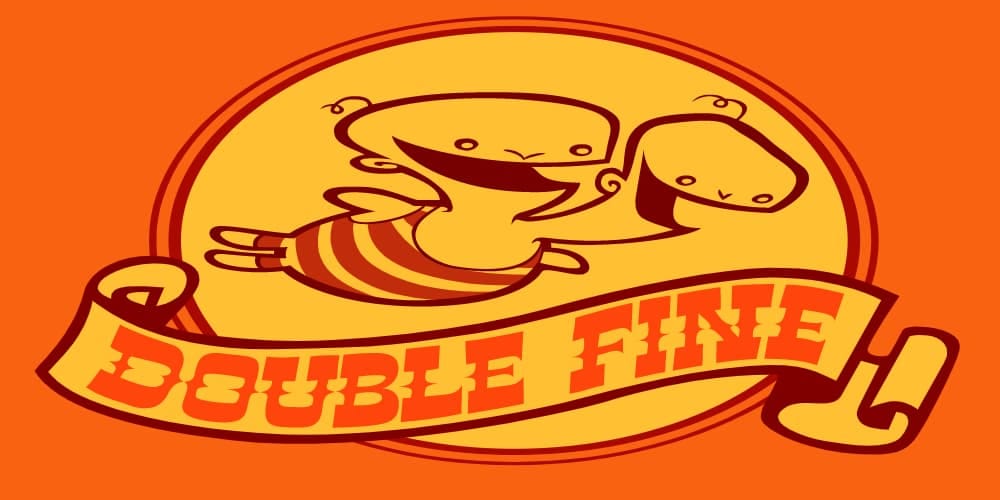
Investors get Equity in Double Fine
Status: Fiction
This isn't one I've heard tossed around here so much in particular but addresses something that Equity Crowdfunding was thought to deal with since when Oculus Rift was sold to Facebook, a lot of backers felt they should get a share of the 2 billion for helping the company take off.
That doesn't happen here, instead, they own a very limited share. You have the right to a dividend from the publisher subscription that you decided to invest in, in which your share will ideally track the performance of.
Let's take a moment here and break down how this all works so that everyone understands it a bit better.
The Parties involved: Loose Tooth (the parent), Fig Publishing (FIG), Grasslands (The Pub Sub, which is the term for the publishing subsidiary that FIG uses for a particular project—each one will have its own "pub-sub"), Double Fine, Rewards Backers, and Investors. Each of these are different parties involved in it.
Loose Tooth owns FIG publishing and it has on their board FIG's lead as well as Tim Schaffer and others. Loose Tooth owns the common stock of FIG Publishing. Grasslands is a wholly owned subsidiary of FIG Publishing and enters into a license agreement with the developer, Double Fine, which sets the terms of the agreement regarding the project getting funded. That sets up the details on the offering, the value of the Game Shares, and terms like whether DLC is covered or not.
Then we launch the crowdfunding campaign. Investors are investing in the preferred tracking stock of FIG. That stock doesn't have any rights beyond that of being paid a dividend, and importantly: you are not buying equity in either Grasslands or Double Fine.
Equally important to note is that there is no way to trade these Game Shares at this time, and inside the documents, FIG is doing its best to stop such a market from opening for one reason or another—likely not wanting to deal with the legal and tracking issues related to it.
Rewards-Based Crowdfunders are in their own little area and their money as far as I can tell goes almost directly to Double Fine without dealing with many of the steps above, just processing through FIG's website.
Investors will earn a share of DLC and All Platform Sales
Status: Fiction
The agreement explicitly states that DLC is NOT included in the investor's profit share, nor FIG’s. Double Fine gets all that money for itself to help support the post-launch development if it does decide to do so as well as its own business. Much like IP investors only own a share of the profits from the sale of the game, not anything else such as spinoffs, or in this case DLC.
Also: VR launches are not covered. It is possible this is due to the fact that much like the DLC it isn’t planned to be at launch but possible sometime down the road. There is also the fact that Double Fine is developing their first VR game with part of another team right now as an interquel and the costs and challenges for a VR launch are something they will be learning.
FIG can use money from Backers and Investors on different projects
Status: Looks Fictionish
This is a concern raised by a section taking from the risks part of the investment documents but is being misread and taken out of context. So first of all let's talk about context: the context here before I put this section down is that this is an investment document.
That means it has to cover ALL the bases, even if it's small things there. There is a section that basically references that if key people fall dead in either FIG, Loose Teet,h or Double Fine, the project will likely fail ... so yes, there is actually a section that could be used to explain what happens if a vengeful deity strikes down Tim Schafer with a sock.
There is another piece of context here that is key as well. Earlier in the document, this is a key element to look at that explains part of FIG's plan for their business model and how they handle funds:
Our business model requires that most (or in some cases all)of the proceeds from the sale of Game Shares be used to make a substantial upfront payment to a developering exchange for publishing rights to receive future revenues from sales of the game.
We intend to pay proceeds (net of any related Publisher Expenses) from the offering of Game Shares to a developer to finance the developer’s development of the game under the license agreement. We do not intend to use any of the proceeds from this offering to fund our operations. Our operations are funded under the Master Services Agreement with our Parent. Our business model requires Pub Subs to make substantial upfront payments to developers in exchange for co-publishing rights to receive future revenues based on sales of the games. We will be at risk if for any reason our Pub Subs do not receive those future revenues, or if they are less than we would need to sustain operations and pay dividends to holders of Game Shares. We have no history to demonstrate, and we can make no assurances, that our business model will be successful, or whether any of agreements with developers or licensed platforms ultimately generate revenues from sales of the games. Consequently, it will be difficult to predict our future success, performance or viability and the viability of our business model, and any such predictions may not be accurate or reliable.
So what this means is that their business model is based on the idea of paying out the funds to the developer right away, subtracting FIG's take for their publishing fee (which in this case is 0.1%). So that money is not there to be taken—it's paid out under their agreement to the developer within 30 days.
There is a cap set in the agreement that can require discussion—but to give an example in Psychonauts 2's case that was set at 15 million. What that number is based on, I think, is the number of shares that are sold via investment, thus any further amounts would require separate discussions and work.
Here is the section that has raised concerns:
We could be required to use assets attributed to one series of Game Shares to pay liabilities attributed to another series of Game Shares.
The assets attributed to one series of Game Shares are potentially subject to the liabilities attributed to another series of Game Shares, even if those liabilities arise from lawsuits, contracts or indebtedness that are attributed to such other series of Game Shares. No provision of our amended and restated certificate of incorporation prevents us from satisfying liabilities of one series of Game Shares with assets of another series of Game Shares, and our creditors will not in any way be limited by our capital structure from proceeding against any assets they could have proceeded against if we did not have any Game Shares. As a result, although we intend for the Game Shares to track the performance of our Pub Subs, we cannot provide any guarantee that the Game Shares will in fact track the performance of each such Pub Sub and that a particular series of Game Shares will not be subject to a disproportionate share of the burden of any non-performing Game Shares, whether or not included in the assets attributed to such series, and will not be attributed a disproportionate amount of our general liabilities, costs and expenses.
So what this means in practice is that the performance or sales of one Pub Sub may be used to cover for another depending on the situation. The agreements, such as the flat payments that have to be done after funding, are still there.
You funding the next project on FIG isn't going to be used to fund the next DJ Phil at Double Fine that happened because Tim somehow blew through 3 million in half the expected time.
What it does mean is that the profits from Psychonauts 2 might be used to temporarily cover issues around another game's income or if legal action of some sort happens utilizing that to cover it off. It is pretty clear they don't want to do it, but without putting in a lot more legal work it’s not possible to get that type of security.
I just want to repeat that this is just my understanding of it, and Zachary agreed there, but it is possible that we are misunderstanding it—it comes down to the fact they clearly want to avoid that type of cross-pollination, but situations may force their hand.
FIG is Accepting Unaccredited Investors before the Rules are Finalized
Status: Fiction
This comes from an easy misconception around what sort of crowdfunding FIG is using for its unaccredited investors at this time. The finalized rules for unaccredited investors you are probably hearing talked about are the more famed Title 3 under the JOBS act in the CROWDFUND section. That isn't what FIG is using or why they are only accepting reservations right now.
Instead of using the more famed Title 3 parts, they are using the higher cost and disclosure laden Regulation A funding method that had its rules finalized in July. Many of the questions around things—such as how they are curating the platform, communication areas, or other Title 3 regulation rules—don't apply here. For accredited investors, it falls under 506 C fundraising, which is what they've used for their past ones.
Regulation A funding also requires that they get approval on the offering, which is why they are taking reservations for unaccredited investors at this time, not taking their money—as we'll talk about in our next point.
So while I am wanting to avoid going too much into depth here, the lawyer we talked with, Zachary Strebeck, sent us a brief rundown on the different types of investment that are relevant to the FIG and Psychonauts 2 situation to help clarify the misunderstandings:
Note: they’re not all technically “crowdfunding.” Really, only Title III is specifically meant for
crowdfunding, though they can all do some de facto crowdfunding by reaching out to a crowd
in order to fund something.Regulation D, 506(c) securities offerings – These are offerings of securities that can be generally advertised (before the JOBS Act they couldn’t be), but the securities can only be sold to Accredited Investors. So it’s like crowdfunding, in that you can advertise the investment opportunity over the Internet, but your “crowd” is limited to Accredited Investors. Doing an
offering under this exemption allows you to avoid costly registration and ongoing regulatory
compliance. There is no limit to the amount that can be raised.Regulation A – These are offerings that allow you to raise up to $50 million from both Accredited and Unaccredited investors, but the Unaccredited investors are limited to 10% of the greater of annual income or net worth if they are an individual (not a company). This type of offering (which Fig is using) requires that the SEC approve your offering materials before the offering begins, provide financial statements and other potentially-costly regulatory compliance.
http://www.sec.gov/info/smallbus/secg/regulation-a-amendments-secg.shtml
Title III of the JOBS Act – true equity crowdfunding – this section of the JOBS Act allows for crowdfunding from anyone, up to certain dollar amounts for individuals, through designated crowdfunding platforms. The amount of regulatory compliance here is lower than with Reg A, but not completely negligible (especially for the platform holders themselves). These rules go into effect first quarter 2016, I believe. See here for more details:
FIG is setting Reservations for Unaccredited Investors to screw them over
Status: Fiction
Okay, we're continuing our delve into the area of investment legal stuff here and some judgment calls. Note I'm not a trained lawyer here, I just talked with one about Crowdfunding, but if you are considering investing you should look at everything yourself as well.
In essence what's going on here is that Regulation A offerings like FIG is doing for Psychonauts 2 have a higher overhead and are relatively new, with the rules just being finalized in July. There is less need for communication areas compared to Title 3 rules, but that means there need to be more disclosures—look up above for more on that.
Here's the big part, though, the SCC has to approve the offering and it's likely that FIG wouldn't want to do the offering if it didn't know it would have enough. So by setting it up like this, they can count it towards the goal but also waste less money if they fail to meet it. Here's what Zachary had to say on it:
The Regulation A Offering, there's a lot more overhead versus the Equity Crowdfunding from Title 3. The Website talks about waiting until Quarter 1 next, but that's because they have to submit all those offering documents to the SCC and then the SCC has to approve their offering documents and say that it's okay.
FIG is a High-Risk Investment
Status: Fact
FIG is, by their own definition and everything around it, a risky venture. They are trying something really new with this crowdfunding plus publishing setup that may or may not be able to become a sustainable company. Now, while you're not investing directly into FIG, you are investing in their ecosystem and ability to keep things going to get your money back over time if Psychonauts 2 sells well. FIG is, as the documents attest, presently in the red having ran only 2 campaigns—one of which was unsuccessful—and they are going to need multiple successful launches and judgments on projects to get out of it over time.
This year is key to FIG as they need to prove they can attract and run projects on top-tier crowdfunding and prove the viability of the platform even as they likely run further into the red requiring more money from their parent company to keep going.
The investor documents (which include the FIG Company Bylaws, License Agreement with Double Fine, Certificate of Designation, The Private Offering Memorandum, the Grasslands Subscription Agreement, and Grasslands Certificate of Incorporation) fully go into this and the fact that it's new territory with this odd set up they are doing here. It's expected that in about one year, FIG and Loose Teeth (the parent) may need to seek additional funding to keep running.
If they are unable to secure that, it is very possible that investments will become lost effectively as the developer does not have any responsibility to the Pub Subs if FIG goes under, although they may choose to—something that would from a PR perspective make a lot of sense.
Getting that funding either from investors or financial services is going to be key on getting projects that they can expect to show money from in a couple of years in addition to getting funds from their publisher service fees that other games will be paying them upon funding.
This is High-Risk investments, and as Zachary Strebeck was prone to saying in our talk, you should make sure you aren't putting up more than you can afford to easily lose.
Psychonauts 2 is a Safe Bet
Status: Fiction
This is something no one, not in FIG, Double Fine, or anywhere else really knows. Psychonauts 2 and the FIG venture carry risks with them. Psychonauts 2, while a sequel to a cult hit and critically acclaimed game, is also a sequel to a game that sold very poorly at launch.
In the first 5 years of its life Psychonauts sold under 500k copies. It has sold over 1 million since, but it is important to understand where many of those copies were sold from and not get lost in the raw 1.69 million number.
Over 730k of those were in Humble Bundle Sales, and it has been bundled there 3 times—once in a general indie one, once in a Double fine one, and one is the Summer Games Done Quickly. It was always in the lowest tier—meaning that it got maximum distribution—even to people who already owned the game.
The other copies of it, on Steam, the Humble Store, and other online retailers often were discounted—many times up to 90% or included in Double Fine bundles on those stores.
Despite what many fans want to think, Psychonauts 2 is far from guaranteed to be a commercial success and it’s easy to forget how much a flop Psychonauts was for the original publisher before being digitally distributed by Double Fine at bargain basement prices.
This is, by the way, also part of the reason why I tend to shrug off some of the claims of saying that Brutal Legends 2 being dependent on success is a Phantom Riches scam. It’s more basic business; if Psychonauts 2 proves that their cult hits can be resurrected for sequels, it makes sense for them to do so again.
If it ends up in the Red or barely breaking even for them, it will be an issue as beyond the potential funds they will have invested in FIG, there’s also the fact that they’ll be relying on other projects to cover their time and money investment in Psychonauts 2 making another similar risk unsustainable.
Double Fine is not putting any money into Psychonauts 2
Status: Fiction
Double fine has shown that they are putting in money of their own in their campaign, though some people are missing that. Double Fine’s plan for Psychonauts 2 has basically the FIG crowdfunding and investing making up about one-third of the budget they said they’ll need for Psychonauts 2. That estimate was 10-13.5m and will be made from Double Fine, the FIG campaign, and a third backer.
We have no idea who this mysterious Third Party Is
Status: Fact
This is one of the large concerns at this point if you are an investor. We don’t know who the third party here is, nor what the terms of that agreement are. This matters because of where they get their money back, what control the third party has if any (likely little to none), and who you are partnering with.
The Console Charge is Just to Milk more Money
Status: Fiction
Consoles, unlike most PC distribution platforms, charge developers when they give codes beyond a small number of codes at the start. Unlike Steam in particular, where a developer can just tell Valve they want any amount of codes and then retail them from their site or third-party portals or give them to backers, consoles want a cut from every sale. That is how they make their money even with the expense of creating and maintaining the consoles as well as certifying releases and updates.
I don’t know the exact charge of it, but from what I’ve heard around, $18 sounds in the neighborhood one would expect there. This is a case of actually being smart there to make sure that a significant amount of funds aren’t forced to go from funding to reward delivery and appears to be a case of Tim Schafer learning from experience.
There’s more that can be asked, but at this point, we’re getting pretty long, so I’ll close it here as I think I’ve addressed many of the most common questions about the Psychonauts 2 campaign. If you have a question here, please do ask and I'll do my best to answer with the information or where you should look for more. I'd like to once again thank Zachary Strebeck for talking with us about the situation and his contributions on a background level as well as several quotes that were invaluable. You can visit his website at: http://strebecklaw.com
Have a tip, or want to point out something we missed? Leave a Comment or e-mail us at tips@techraptor.net
